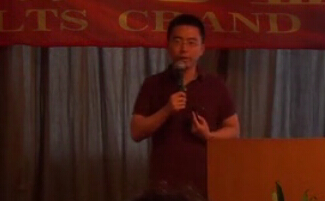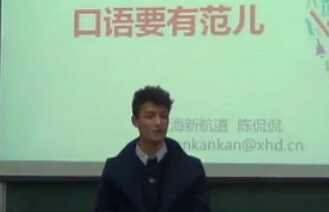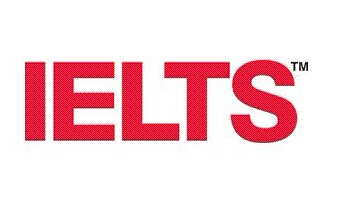雅思阅读材料之花多少钱才能买到快乐呢
2014-01-09 13:41 供稿单位: 新航道
出国英语考试有哪些 雅思6.5是什么水平 雅思阅读评分标准 托福阅读评分标准 雅思和托福的区别
Could it be that humans are not quite as gullible as advertised?
For a couple of decades now, social psychologists and behavioral economists have been amusing themselves manipulating consumers into doing odd things. They’ve delighted in debunking the notion of homo economicus, that theoretical creature who rationally seeks maximum economic utility.
Old-fashioned cost-conscious consumers would react to a price increase by lowering demand for the product, but we sometimes do just the opposite. We want to buy more of it because we assume it must be a better product — and we’re so thoroughly fooled that our bodies even respond differently to it.
If you give people a placebo and tell them it’s a painkiller costing $2.50, they can withstand painful shocks better than if they’re told the pill costs a dime. Give them an energy drink at a discount price, and they’ll perform worse on subsequent tests than if they pay full price. If you tell them the wine they’re tasting costs $90 a bottle, then the reward centers of their brains will light up more than if you tell them it’s a $10 bottle.
But suppose, instead of scanning people’s brains as they’re sipping wine in a laboratory, you tested them in a more realistic situation: a restaurant where they’re spending their own money. That challenge was undertaken at an upscale restaurant in Tel Aviv by two behavioral economists, Ori Heffetz of Cornell and Moses Shayo of the Hebrew University of Jerusalem, who expected to be able to manipulate diners’ choices by changing the prices on the menu.
Unbeknownst to the diners or to their waiters, the economists monitored the choices of people who ordered from the prix fixe menu. The three-course meal cost included a choice of five entrees: shrimp gnocchi, pork shank, red mullet fillet, sausage or stuffed artichoke.
Next to each of these entrees on the menu, in parentheses, was the cost of what it would cost to order that entree from the à la carte menu. These prices didn’t affect the cost of the prix fixe meal, which was the equivalent of $30 no matter what the entree, but the researchers expected just the sight of the prices to make a difference. If the mullet were listed at $20 and the other entrees were $17, more people would presumably be enticed into ordering the seemingly more valuable fish.
But after three months of testing various combinations of prices, the researchers found they couldn’t sway the customers. Putting a higher price on the shrimp or any other entree didn’t make people more likely to order it.
This same stubbornly independent streak was manifest in another food experiment by the same researchers. This time they let people sample two kinds of candies — peanut butter bars and caramels — and varied the sticker prices for each one.
Superficially, the manipulation seemed to work, because people said they would be willing to pay more for a candy if it had a higher sticker price, but that was just in answer to a hypothetical question. When people were given a chance to pick a bag of candy to take home, they pretty much ignored the sticker prices and chose what they liked.
Why weren’t people duped into favoring the high-priced candies and entrees? Why did they follow their own tastes?
“Maybe, sometimes, old-fashioned economics is just about right,” Dr. Shayo says. “Maybe when it comes to food, people do have reasonably stable preferences. Some people like shrimp and some don’t, even if it’s worth a lot of money.”
The researchers don’t deny that consumers can be swayed by variations in sticker prices in laboratory experiments. But they question how significant that factor is in real-world settings where prices can’t be inflated so extremely, like the Tel Aviv restaurant. “Size is everything,” Dr. Heffetz says. “Our findings remind us that knowing that ‘A has a positive effect on B’ is not enough. The effect may simply be too small to matter.”
The size-matters effect seemed to show up in a much less rigorous bit of research conducted at my TierneyLab blog with the help of Geoffrey Miller, an evolutionary psychologist at the University of New Mexico. In his new book, “Spent: Sex, Evolution and Consumer Behavior” (Viking), he argues that humans often waste money because of the unconscious — and mistaken — belief that our costly stuff will signal our intelligence and sterling personality traits to potential mates and allies.
As an exercise, Dr. Miller asked readers of the blog to list the 10 most expensive things they had ever bought, and then list the 10 purchases that had brought them the most happiness. More than 200 responded. As we expected, many people rued spending lots of money for stuff that hadn’t brought them joy. Boats seemed to have particularly low utility in delivering happiness per dollar; many cars fit that category, too, and so did many expensive weddings.
But we were struck by how much overlap there was between the most-expensive list and the most-happy list. People repeatedly included on both lists their homes, their college education, their vacation trips, their high-priced electronics (large-screen televisions, Blu-Ray player, audio equipment, computers) and certain models of cars (BMW 325, Audi A4, Jaguar, Subaru WRX, Toyota Prius, Honda Civic).
Indeed, the first trend that Dr. Miller identified was the match between the happiness and expense lists. Some of this may have been because of postpurchase rationalization, but a lot of buyers seemed to be suffering anything but remorse. As one reader, Janet Hubbs, put it:
“The three things (not necessities) I have spent the most money on in the past ten years are: my cottage at Cape Cod, my Lexus, and my Rolex — and I LOVE all three, in the order of their cost. And I don’t care what that says about me.”
- 上一篇:雅思阅读材料之“啤酒肚”不是喝出来的?
- 下一篇:雅思阅读材料之女性消费

- 新航道,英语成功之道。时间获取新航道英语学习资料和新鲜资讯,请在微信公众账号中搜索「新航道英语」或者「xhdenglish」,或用手机扫描左方二维码,即可获得新航道每日精华内容推送和英语学习经验分享,并参与新航道举办的各项活动。
精彩专题
更多视频荟萃
更多
-
新航道姚骏鹏-雅思阅读高分攻略
时长:03-06

-
新航道陈侃侃-雅思口语要有范儿
时长:03-06

-
【3分钟学雅思】王大锤告诉你为啥药不能停
时长:01-12

-
【3分钟学雅思】全世界个感官餐厅
时长:01-12
热门文章
更多
-
8月31日雅思广州考机考初体验
选择机考模式的考生将通过机考模式参加听...








